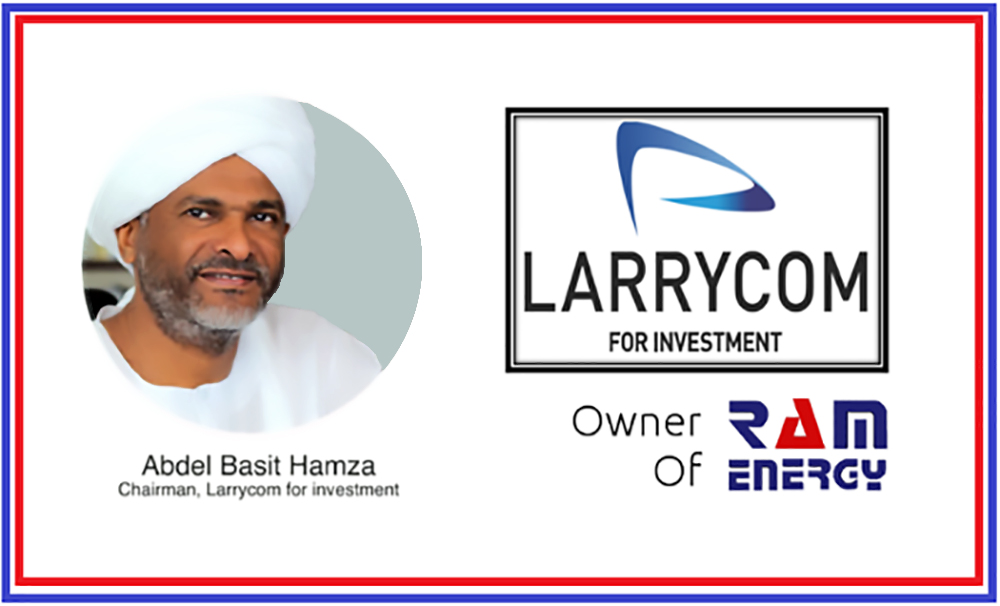
Abdel Basit Hamza: From the Committee for the Removal of Empowerment of the June 30th Regime to the US Treasury Corral
moatinoon
Today, the US Treasury imposed sanctions on nine individuals and one entity in Sudan, Turkey, Algeria, Qatar, Gaza, and the West Bank, in connection with Hamass financial network.
The sanctions are led by the well-known Sudanese businessman Abdel Basit Hamza Al Hassan Mohamed Khair (Hamza), considered a financier of Hamas and a resident in Sudan.
According to the US Treasurys decision, Hamza managed several companies in Hamass investment portfolio and previously participated in transferring about 20 million to Hamas.
Including the money sent directly to Maher Jawad Younes Salah, one of the senior officials of Hamas and the financial officer of Hamas, who was classified as a special global terrorist by the Office of Foreign Assets Control on September 10, 2015.
Hamza facilitated funds for Hamas through a network of major companies in Sudan.
Mysterious Biography
Abdel Basit Hamzas biography shone in the skies of finance and business after he was responsible for the National Security and Intelligence Services file on jihadist groups and his close relationship with Osama bin Laden since his arrival in Sudan in 1991 until his departure due to international pressure in 1996. There was much talk about the money he left behind and whispers about those who took it, and the man remained mysterious and away from the spotlight for many years.
Before that, Hamza, who graduated from the College of Engineering, Surveying Department, worked in his field of specialization until he joined the armed forces and then moved to the security service.
After that stage, the engineer, coming from the city of Kosti with a background far from wealth, entered the world of finance and business through the widest doors of empowerment policies. From telecommunications companies to road sectors, retail trade, and hospitality, he even became a member of the management board of Al-Merrikh Club.
Just the Tip of the Iceberg
What the Empowerment Removal Committee revealed during the transitional government period is just the tip of the iceberg of the mans biography in these fields. The committee listed the properties it recovered as totaling 1.2 billion, including shares in MTN Sudan, real estate, and lands, 30 million shares from Larcom telecommunications company, MTN Sudan, 4 million shares from Al-Zawaya Company, 31% of his shares in Rotana Khartoum Hotel, in addition to thousands of meters owned by the government, on which the mentioned (Afra Mall) and (Rotana) Hotel, and Friendship Palace Hotel were built.
The committee asserted that he obtained this money through illegal means, as he appeared in a short period as one of Sudans wealthiest people.
This is in addition to the lands he obtained in the Northern State in exchange for the construction of the 360-kilometer road connecting Sudan to Egypt. In a press interview with the newspaper Al-Masry Al-Youm, Abdul Basit Hamza, the CEO of Al-Zawaya Company, which holds the concession to construct the Arqin-Dongola road, said, We are the first company in the Arab world to undertake road construction, with the aim of developing investments with Egypt, with a concession system for 43 years, at an investment cost of 200 million, and the Sudanese government granted us the right to exploit an area of 1,000 meters on both sides of the road to establish projects.
He added, The government granted us 2 kilometers on the road, with a kilometer on each side, in addition to 2 million acres of agricultural land. The Empowerment Removal Committee had recovered from him six land plots belonging to the Dongola Arqin Road Company with an area of 14,991,500 square meters in the Northern State, in addition to the recovery of an area of 1,186,000 acres of agricultural land.
In the communications sector, in 2011, according to a letter addressed by the editor-in-chief of Al-Ahdath newspaper, Adel Al-Baz, to the President of the Republic at the time, Omar Al-Bashir, revealing corruption in the communications sector, Larcom Company owns 25% of the shares of Expresso Company in West Africa and 75% for Sudatel, while Larcom owns 30% and Sudatel 52% of Intercellular in Nigeria. And what is hidden is greater, as he said.
In April 2021, a special court formed at the time by the Chief Justice, Abdel Basit Hamza Al Hassan Mohamed Khair, convicted him and sentenced him to more than 10 years in prison on charges of illicit enrichment, money laundering, terrorism financing, and other charges.

